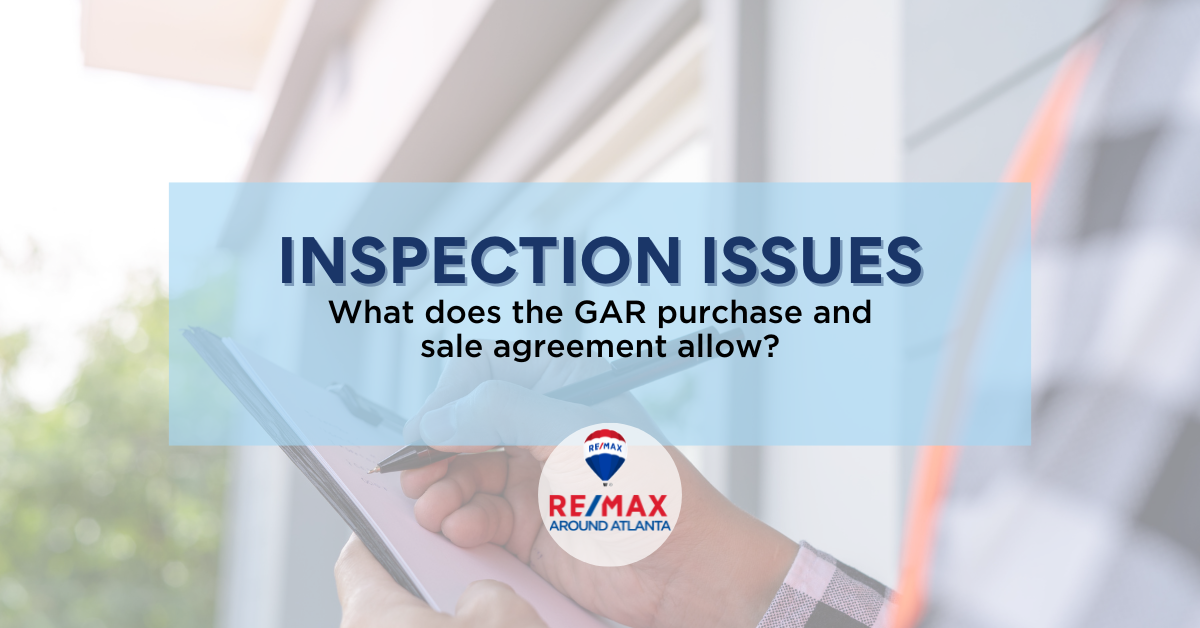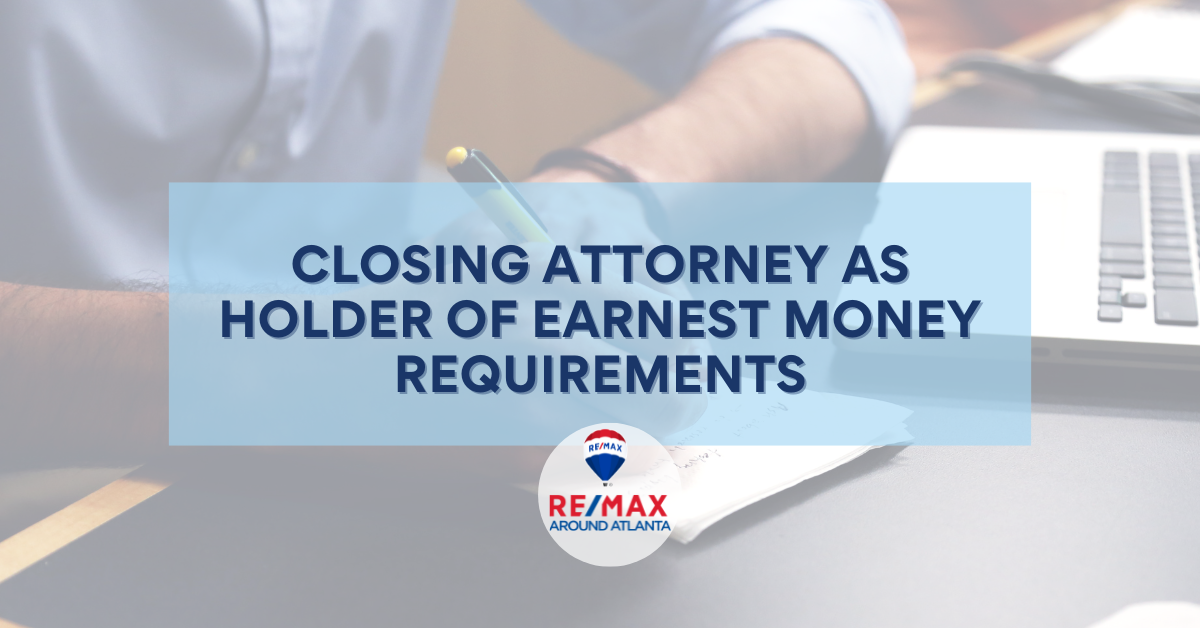|
The GAR Purchase and Sale Agreement gives the buyer and the buyer’s agents the right to enter and to thoroughly inspect, examine, test, and survey the property under contract. This right exists regardless of whether the property is being sold “as is,” subject to a due diligence period, or with a right to request repair of defects. The right to inspect has to be exercised at reasonable times and exists up to the time of closing. The buyer not only has a right to inspect the property, but under the doctrine of caveat emptor (buyer beware), also has a duty to do so. The underlying principle of law is that the buyer cannot claim that he has been deceived by false misrepresentations about defects that the buyer could have discovered.
Multiple Inspections If the discovery of a condition would cause a reasonably prudent buyer to investigate further, the buyer is under an obligation to investigate further. There are a lot of situations that might require a further investigation: mold, termites, ceiling stains, even a blocked passage. Consider the situation of a burst pipe after the initial inspection. The seller repairs the pipe and repairs the sheetrock. The seller must inform the buyer of the change in condition (the burst pipe and repair) and the Seller Property Disclosure would need to be updated to reflect the condition and repair. The buyer has the right to reinspect to evaluate the repair but is also responsible for the cost of repair following the reinspection. So long as the seller repairs the burst pipe and delivers the property in the same or better condition as it was on the offer date, the seller has fulfilled its obligation. Does the Buyer Have to Hire A Professional Inspector? There is no legal duty for a buyer to hire a professional home inspector or to hire an inspector at all. However, the failure to retain a professional home inspector can be used as a defense against a purchaser who subsequently discovers damage to the property. The argument is that the buyer failed to exercise due diligence by not retaining a professional. Remember, Georgia is a Buyer Beware state. Language Change for Buyer’s Payment of the Cost of Inspection Damage If the property suffers damage by the inspection, the buyer is also required to pay for the repair of any damage to the property caused by the inspection. This section previously provided that: “Buyer agrees to hold Seller and all Brokers harmless from all claims, injuries and damages relating to the exercise of these rights and shall promptly restore any portion of the Property damaged or disturbed from testing or other evaluations to a condition equal to or better than the condition it was in prior to such testing or evaluation.” This section was revised so that the buyer, rather than actually restoring the property damaged in an inspection, agrees to pay to seller the actual cost to restore the damage. This change was made so that the seller could control the repairs being made to the seller’s property. In addition, the entire section was added in a boldface font so that the buyer’s indemnification obligations are now very prominent. By doing this, it will also make it harder for buyers to argue that they did not see this section and should therefore not be bound by it. This indemnification obligation shall not apply to damage resulting from defects in the Property uncovered during the inspection of the Property. Reference: Weissman, Seth. The Red Book on Real Estate Contracts in Georgia (p. 821-836). BookBaby. Kindle Edition.
0 Comments
NAR’S 2023 PROFILE OF HOME BUYERS & SELLERS – Be the expert and leverage the data provided!5/13/2024 NAR releases some great data every year in their Profile of Home Buyers & Sellers. Here’s how to leverage that data… Sure, homeowners can try selling their homes on their own, but let’s face it: unless they’ve secretly mastered the real estate market overnight, they're likely leaving a hefty chunk of change on the table. Homes agents handle fetch around $405,000 on average, while those FSBO adventures? They average about $310,000. That's nearly $100k that could have been in their pockets. That’s not just a small difference—it’s a new luxury car or a year’s college tuition kind of difference! We live in a country that spends over $52 billion per year on lawn care. Consumers want the easy button, a seasoned pro who can navigate these tricky tides and ensure the sale doesn't just go through but that it sticks the landing financially and legally. So, when you roll out your pitch, don’t just talk about putting up signs and hosting open houses (maybe). Tell them about the real stuff—maximizing their sale price through expert marketing, deep market knowledge, and airtight compliance with the latest laws. You’re not just selling a service; it’s financial security, legal assurance, and, yes, a heck of a lot less stress. Isn’t that worth more than just a handshake and a smile? Here is a link to the NAR Profile: https://cdn.nar.realtor/sites/default/files/documents/2023-profile-of-home-buyers-and-sellers-highlights-11-13-2023.pdf?_gl=1*5i4rar*_gcl_au*MTgyNTk5MDI3Ny4xNzE1MjcxODYx The following two forms must be executed and included with the
contract: 1. GAR Form F510 – Closing Attorney Acting as Holder of Earnest Money Exhibit. This document specifies who the closing attorney is with their contact information. It also includes a section to name an alternate holder who must be a broker. It is very important to name an alternate holder in case the closing attorney does not timely agree to be the holder. Otherwise, there would not be a contractual holder of the earnest money to enforce the terms of the agreement should the earnest money not be delivered or if there is an earnest money dispute. 2. GAR Form F511 – Agreement of Closing Attorney to Serve as Holder of Earnest Money (“Escrow Agreement”). The Buyer’s agent must deliver the fully executed purchase and sale agreement and Escrow Agreement (F511) to the attorney within two days of the binding agreement date. The closing attorney must agree to become the holder within five business days of receiving the entire contract. Important to remember:
If the closing attorney does not agree to become the holder of the earnest money within five business days, the alternate holder automatically becomes the holder.
when it has been done.
to the contract as an exhibit and initialed by both parties. The F511 also needs to be completed and agreed to by the closing attorney and provided to all parties.
funds, the closing attorney shall not disburse the funds based upon a reasonable interpretation of the agreement. The only remedy available to the closing attorney shall be to interplead the funds into a court of competent jurisdiction. We recommend that you have RMAA hold earnest money whenever possible, so we have greater control over compliance and notices. |
RMAAReal Estate News, Brokers Blog & More Categories
All
Archives
May 2024
|




 RSS Feed
RSS Feed